Search Definitions
Browse Content (p. 124)

Definition
Ahriman
Ahriman is the evil spirit in Early Iranian Religion, Zoroastrianism, and Zorvanism, Lord of Darkness and Chaos, and the source of human confusion, disappointment, and strife. He is also known as Angra Mainyu (evil spirit or dark spirit...

Definition
Andromache
Andromache is a Greek tragedy written by Euripides (c. 484-407 BCE), one of only 19 plays (out of 92) to survive. The play is actually in two parts, and like Sophocles' Women of Trachis, it has no central character. The first part of the...
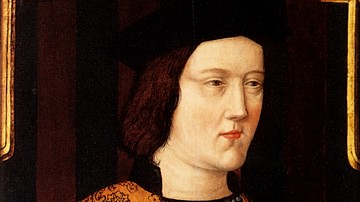
Definition
Edward IV of England
Edward IV of England ruled as king from 1461 to 1470 CE and again from 1471 to 1483 CE. The Hundred Years' War (1337-1453 CE) had been lost by Edward's predecessor, Henry VI of England (1422-1461 CE & 1470-1471 CE), leaving Calais as the...
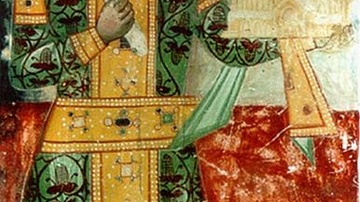
Definition
David IV the Builder
David IV the Builder or the Restorer (also known as Davit IV Aghmashenebeli) was the king of Georgia from 1089 to 1125 CE. His long reign was marked by a substantial revival of medieval Georgia, he regained much of Georgia's lost territory...

Definition
Henry VI of England
Henry VI of England ruled as king from 1422 to 1461 and again from 1470 to 1471. Succeeding his father Henry V of England (r. 1413-1422), Henry VI was crowned the king of France in 1431 but he could not prevent a French revival led by Charles...
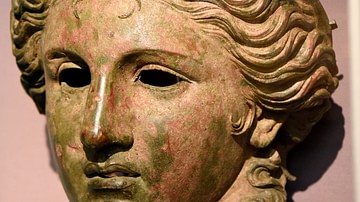
Definition
Anahita
Anahita is the ancient Persian goddess of fertility, water, health and healing, and wisdom. Owing to her association with life-giving properties, she also came to be connected with ancient Persian warfare as soldiers would pray to her for...
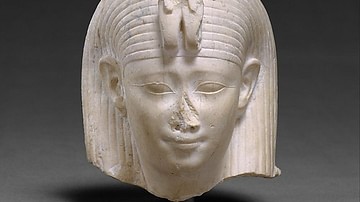
Definition
Arsinoe II Philadelphus
Arsinoe II (l. c. 318/311 - c. 270/268 BCE), daughter of Ptolemy I became one of the most enduring figures of the Lagid or Ptolemaic Dynasty and left an undeniable mark in the historical evidence. She was married three times; first to Alexander...
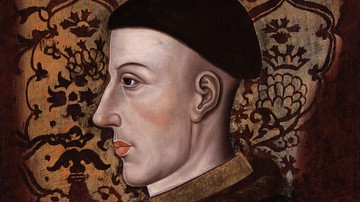
Definition
Henry V of England
Henry V of England ruled as king from 1413 to 1422. Succeeding his father Henry IV of England (r. 1399-1413), Prince Henry established himself as a fine military leader in battles against English and Welsh rebels in the first decade of the...

Definition
Women of Trachis
Women of Trachis is a Greek tragedy, one of Sophocles' (c. 496 BCE - c. 406 BCE) lesser-known works, the only one that does not deal with the aftermath of the Trojan War, rather it is concerned with the death of the Greek hero Heracles (or...
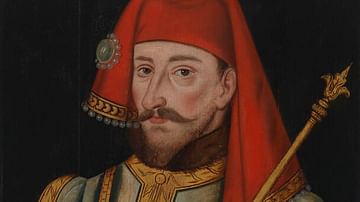
Definition
Henry IV of England
Henry IV of England ruled as king from 1399 to 1413 CE. Known as Henry Bolingbroke, Duke of Lancaster before he became king, Henry clashed with his cousin Richard II of England (r. 1377-1399 CE) and was exiled in 1397 CE. Returning to England...